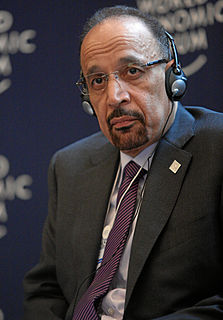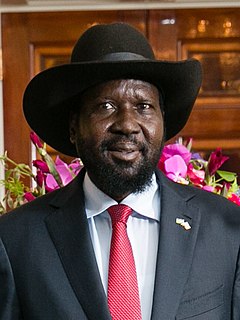A Quote by Richard Heinberg
What's new is high oil prices and the economy hates high oil prices.
Related Quotes
High prices can be the result of speculation, and maybe plunging prices can be attributed to the end of speculation, but low prices over time aren't caused by speculation. That's oversupply, mainly by Saudi Arabia flooding the market with low-priced oil to discourage rival oil producers, whether it's Russian oil or American fracking.
This morning, prompted by increasing concerns about terrorism, oil prices reached a record high as the cost of a barrel of crude is a whopping $44.34. Wow, it seems shocking that a product of finite supply gets more expensive the more we use it. Now the terror alert means higher oil prices, which oddly enough means higher profits for oil companies giving them more money to give to politicians whose policies may favor the oil companies such as raising the terror alert level. As Simba once told us: "It's the circle of life."
Russia does not have a modern economy: it's a petro-power. The only thing it sells that the world wants to buy is oil and natural gas. When was the last time anyone bought a Russian computer? A Russian car? A Russian cell phone? Russia is so dependent on high energy prices that if oil falls below $100 a barrel, the Kremlin can't meet payroll.
Even if we were to sign peace today, the economic conditions in our country would not improve automatically because it will take some time to reach the level of oil production before the war and the oil prices are likely to remain low for some time as the supply of oil in the world is high and demand is low.

































